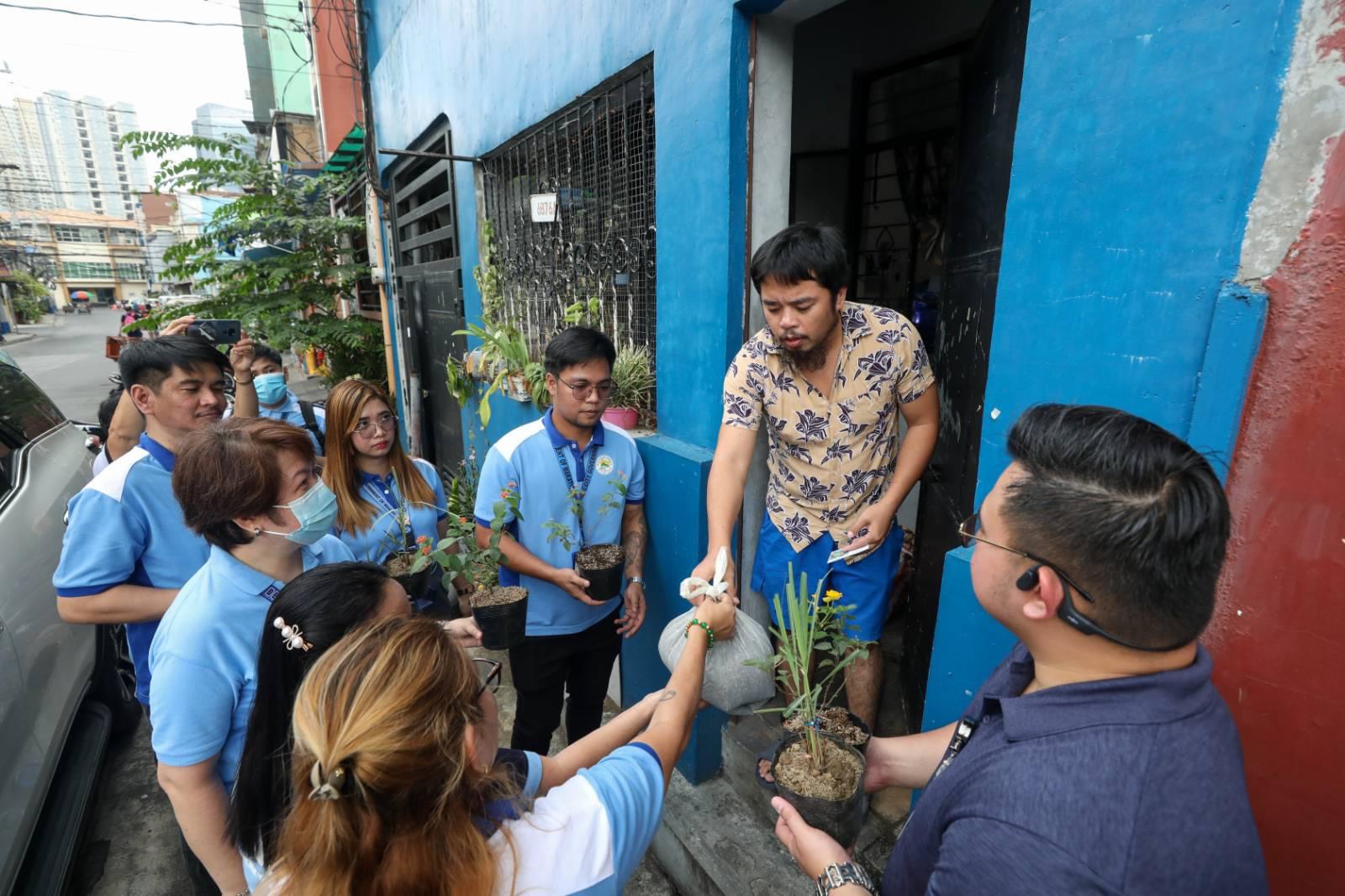To help protect Makati City residents from dengue-carrying mosquitoes, the local government announced on Monday, Dec. 18, that it has distributed various plants that help prevent the proliferation of dengue-causing mosquitoes in one of its barangays.

(Photo from Makati LGU)
Makati City Mayor Abby Binay said officials of the Makati Health Department, with the help of the Department of Environmental Services (DES), gave residents of Barangay Pio del Pilar various plants which include Citronella, Oregano, Lantana, and Lemongrass.
"Layunin ng programa na maiwasan ang pagdami ng lamok sa komunidad na maaaring maging sanhi ng dengue at iba pang sakit. Ang mga halamang tulad ng Citronella, Oregano, Lantana, at Lemongrass ay may natural na properties na inaayawan ng mga lamok (The goal of the program is to prevent the increase of mosquitoes in the community which could cause dengue and other diseases. Plants such as Citronella, Oregano, Lantana, and Lemongrass contain natural properties that mosquitoes hate)," Binay explained.
Aside from taking care of the plants, she urged other residents of the city to maintain the cleanliness of their surroundings and remove stagnant water that accumulate after the rains. She also urged them to dispose of old tires and garden decorations that could become a nest for mosquitoes.
In August, Binay said the city government is fully prepared for the rainy days and the expected seasonal diseases which include dengue.
She assured Makatizens of their safety and welfare in case of flooding and other emergencies by investing in state-of-the-art equipment such as a mobile command center, mobile kitchen, mobile showers, and other necessary disaster response and rescue equipment that can be used for the rescue and evacuation of residents when the need arises.
She also reminded her constituents on the diseases that the rainy season brings.
"Ang gusto ko sanang ipaalala sa lahat ay ang personal ninyong pag-iingat dahil maraming sakit ang puwedeng makuha kapag maulan. Isa na rito ang leptospirosis na karaniwang kumakalat sa pamamagitan ng mga ihi at dumi ng mga daga. May ibang uri ng mga hayop na maaari ring maging carrier ng sakit na leptospirosis, pero pinakamadalas itong nakukuha kapag humalo ang ihi ng infected na daga sa tubig baha (I would like to remind everyone to take extra care because a lot of diseases spread during the rainy season. One of these is leptospirosis which is spread through direct contact with the urine and feces of rats. There are other kinds of animals that could carry the said disease, but most of the time, leptospirosis is contracted when the urine of infected rats mix with flood water)," Binay explained.
"Kapag lumusong ka at ikaw ay may sugat, kahit papagaling na, puwede ka pa ring magkaroon ng leptospirosis. Bagamat nagagamot ang sakit na ito, mas mabuti pa ring iwasan ang pagkakasakit—lalo na ang mga senior at bata (When you wade through floodwater and you have an open wound that is already healing, it is still possible for you to contract leptospirosis. Despite that there is a cure for this disease, it's better to avoid exposing yourself to leptospirosis especially if you are a senior citizen or a child)," she added.
The mayor urged parents and guardians of Makatizen children to prevent them from going outside their homes when there is flooding in their area.
"Kung hindi maiiwasan o talagang kinakailangan, magdoble ingat po at magsuot ng bota bilang proteksiyon (If it could not be prevented, please take extra care and wear boots when going through flooded areas)," Binay stressed.
"Matagal na tayong may mga programa laban sa dengue sa mga komunidad. Bukod sa regular na paglilinis ay nagkakaroon din tayo ng paglalatag ng ovi traps para hindi na dumami ang mga lamok. Mayroon din tayong misting o fogging activities para mamatay ang mga lamok, lalo na sa matataong lugar (We already have programs being implemented in our communities against dengue. Aside from regular clean-up drives, we have also installed ovi traps to prevent the proliferation of mosquitoes. We also conduct regular misting and fogging activities to kill mosquitoes in high density areas)," Binay said.
Ovi-larvi traps attract egg-laying female mosquitoes and kill their eggs and larvae.
The city government had also distributed anti-dengue kits to its students to educate them on preventive measures against the disease.
Each kit contains a 250ml mosquito repellent lotion and a wrist band with four citronella capsules that last up to three months per piece.
Binay had earlier urged the public to implement the “4S” strategy in their houses, campuses, and offices to prevent mosquito-borne diseases.
The 4S strategy involves searching and destroying mosquito-breeding sites, securing self-protection measures (use of insect repellent sprays/lotions, long sleeve shirts, and long pants), seeking early consultation, and supporting fogging and spraying in hotspot places.
Aside from dengue kits, the city government also distributed boots and raincoats to its learners to ensure their protection from the bad weather.